Intersex Day of Solidarity: Why it Matters and How You Can Show Up
Have you ever heard of Intersex Day of Solidarity? It's a day dedicated to raising awareness and showing support for the intersex community—a group that’s often sidelined in conversations about identity and human rights. The day shines a light on intersex voices and experiences and promotes inclusion.
Every year on November 8th, we get a chance to show up, speak out, and push for a future where intersex people are recognized and respected. It’s not about token support; it’s about understanding, advocacy, and action. So, let’s talk about why Intersex Day of Solidarity matters and how you can be part of it.
What Is Intersex Day of Solidarity?
Intersex Day of Solidarity, observed annually on November 8th, recognizes intersex individuals and their experiences. It’s a day for education, awareness, and action to address the issues intersex people face—everything from discrimination to medical neglect. Intersex is a term that refers to people born with sex characteristics that don't fit typical binary ideas of male or female bodies. This variation is natural, but intersex people often face stigmatization, invasive medical procedures, and other injustices.
On Intersex Day of Solidarity, allies and advocates come together to stand with the intersex community, promoting respect, rights, and recognition.
Why November 8? A Brief History
The date isn’t random. November 8th honours the memory of Herculine Barbin, a 19th-century intersex person who endured medical scrutiny and stigma. Barbin's life and writings shed light on the historical mistreatment of intersex people, highlighting how little has changed. Observing Intersex Day of Solidarity on this day underscores the need for advocacy and respect.
5 Ways to Support Intersex Day of Solidarity
Want to help? Here are five practical ways to support intersex people on Intersex Day of Solidarity—and every day.
-
Educate Yourself
Take the time to learn about intersex experiences. Check out organizations like Intersex Human Rights Australia or Intersex Justice Project. Understanding the facts will help you be a better ally. -
Challenge Misconceptions
Confront myths around sex and gender, including the idea that sex is strictly binary. Talk about it openly with friends, family, and colleagues to help shift attitudes. -
Support Intersex Rights Groups
Donate to or volunteer with organizations focused on intersex rights, like InterACT or OII Europe. These groups are at the forefront of the fight for intersex justice. -
Show Up on Social Media
Share posts, articles, and facts about intersex rights. Spread awareness and highlight the challenges intersex people face. Use your platform to amplify intersex voices. -
Advocate for Policy Change
Call on local representatives to protect intersex rights. In many places, intersex people lack protections against discrimination and non-consensual surgeries. Your voice can help push for change.
FAQs About Intersex Day of Solidarity
Q: What does “intersex” mean?
A: Intersex refers to people born with physical traits that don’t fit traditional definitions of male or female. This might include variations in chromosomes, hormones, or anatomy. It’s estimated that up to 1.7% of people are intersex—similar to the percentage of people with red hair.
Q: Why is Intersex Day of Solidarity important?
A: Intersex Day of Solidarity highlights issues faced by intersex people, like stigma, discrimination, and medical mistreatment. The day fosters understanding, inclusion, and advocacy, giving people a chance to support intersex rights.
Q: How can allies help on this day?
A: Allies can help by educating themselves, challenging stereotypes, supporting intersex organizations, sharing information, and advocating for legal protections.
Q: Are there any events for Intersex Day of Solidarity?
A: Yes! Many LGBTQ+ groups and intersex advocacy organizations host events, webinars, and discussions. Keep an eye on social media for announcements, or reach out to local LGBTQ+ organizations for information.
The State of Intersex Rights Today
Progress has been slow for intersex rights, though awareness is growing. In some countries, intersex people still face forced surgeries, lack of medical autonomy, and discrimination. But advocacy groups are pushing for changes to ensure that intersex individuals receive fair treatment and respect.
Countries like Malta, Germany, and Iceland have made strides in intersex rights by passing laws banning non-consensual surgeries on intersex infants. But there’s a long way to go, and widespread change depends on public support and pressure on lawmakers.
Support With Action, Not Just Words
Talking about intersex rights isn’t enough. Real change requires us to take steps, raise awareness, and advocate for policies that protect intersex people. Remember, allyship is active. This Intersex Day of Solidarity, let’s commit to learning, supporting, and showing up in real ways.
What can you do today to support intersex rights? Whether it's sharing a post, donating to an organization, or simply educating yourself, every action counts.







